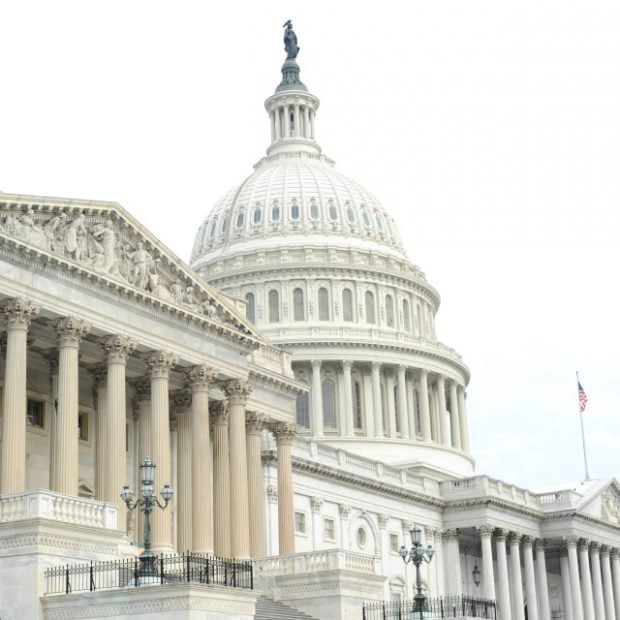SACRAMENTO, Calif. – It took two years and a lot of perseverance, but California consumers may finally have their financial privacy protection law. On Aug. 19, five days after banks, insurance companies, and brokerages that were faced with a statewide ballot initiative that could have resulted in stringent financial privacy protections, reached an agreement with Sen. Jackie Speier, the author of S.B. 1 and removed their opposition from the bill, the state Assembly and Senate passed the measure unanimously. Speier had been trying since 2001 to get her bill passed only to see it die repeatedly in the Assembly Banking & Finance Committee because of lack of votes. Californians for Privacy Now had vowed to take the issue directly to voters with a March 2004 ballot measure. They had collected more than 600,000 signatures from registered California voters in support of the measure and had given lawmakers to the end of the day on Aug. 19 to pass Speier's measure. The coalition announced it will not proceed with the initiative since the state legislature passed S.B. 1 At press time, S.B. 1 was on its to Gov. Gray Davis for his signature, and he has promised to sign the landmark consumer protection bill into law. Consumer groups hailed the passage of the privacy protection legislation as a major victory for consumers in California. After years of special interest gridlock that stood in the way of reform, everyday Californians have triumphed over big money politics in Sacramento, said Shelley Curran, policy analyst for Consumers Union's West Coast Regional Office. Steve Blackledge, director of CALPIRG, echoed others' sentiments on the bill's passage: "The nearly unanimous lopsided legislative victories in the Assembly and Senate make it clear that lawmakers got the message – consumers are fed up and want greater control over their private financial information." The agreement reached by Speier and the bill's opponents followed a series of negotiations between the parties. The compromise bill, modeled after Speier's earlier bill SB 1, retains almost all the provisions of Speier's original measure which failed to garner enough votes twice before this, the last time on June 17 (CU Times, July 16). Under SB 1, financial institutions have to allow consumers to "opt out" of having their information shared within a "family of companies" – affiliates and subsidiaries that have a different regulator from the parent company. Consumers also have the right to opt out of information-sharing with financial third parties, but they have to explicitly "opt-in" before financial institutions can share information about them with non-financial third-parties." In addition, Speier's bill: doubles penalties for identity theft perpetrators; restricts financial profiling of consumers; alternatives to mandated notice must be filed with Office of Privacy Protection; clarification of sharing in agreements between consumers and licensed broker-dealers in securities industry; for affinity situations, such as Sierra Club Visa card, opt-out standards are retained and include telephone number with other contact information; allows `functional regulator' to approve alternative to mandated (safe harbor) notice if readability and clarity standards are met; pre-paid reply postage on notice retained unless consumer offered two cost-free ways to respond to notice; return envelope retained; Attorney General enforcement powers retained. SB1 also pre-empts several local privacy ordinances passed primarily by cities and counties in Northern California. The bill is effective July 1, 2004, six months later than Speier's earlier bill would have gone in to effect. CCUL originally opposed Speier's first privacy measure, SB 773, but it reversed its position last year after negotiations with Speier. Since then CCUL has worked for the bill's passage, and League sources said the Senator gave special acknowledgement during a Aug. 14-news conference to the state's credit unions for breaking ranks with the rest of California's financial services industry and working for passage of SB1. "The Senate's approval of SB1 and the stunning action by the Assembly, mark the culmination of a goal that California credit unions have been working toward for more than a year," said California Credit Union League President/CEO David Chatfield. He thanked credit unions for their support in pushing the bill through, and Speier "for her willingness to work with the state's credit unions in crafting a workable bill, and for her public endorsements both of our efforts to secure the bill's passage and of our long-standing protection of our members' privacy." -
Complete your profile to continue reading and get FREE access to CUTimes.com, part of your ALM digital membership.
Your access to unlimited CUTimes.com content isn’t changing.
Once you are an ALM digital member, you’ll receive:
- Breaking credit union news and analysis, on-site and via our newsletters and custom alerts
- Weekly Shared Accounts podcast featuring exclusive interviews with industry leaders
- Educational webcasts, white papers, and ebooks from industry thought leaders
- Critical coverage of the commercial real estate and financial advisory markets on our other ALM sites, GlobeSt.com and ThinkAdvisor.com
Already have an account? Sign In Now
© 2024 ALM Global, LLC, All Rights Reserved. Request academic re-use from www.copyright.com. All other uses, submit a request to [email protected]. For more information visit Asset & Logo Licensing.








